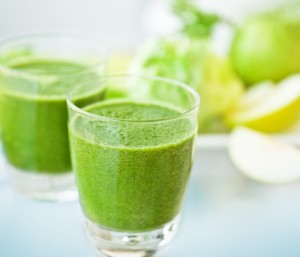Differences Between Centrifugal and Cold Press Juicing
Soup and juice is for life. What’s juicing exactly? A Cold Press Juicer is also known as Masticating or Slow Juicer – see one in action here Soup and juice isn’t a fashion. These are for lifelong nutrition. Our London Naturopath answers: Centrifugal Juicer or Centrifugal Juice Extractor?
Centrifugal (fast blade) and Cold Press (slow juicing)
Traditionally a Centrifugal Juicer is the most common type of juicer. These typically utilise a fast-spinning metal blade that spins against a mesh filter, separating juice from flesh via centrifugal force. The juice and pulp are then separated into different containers.

Centrifugal Vs Cold Press Juicing
Centrifugal Juicer – benefits
Pros
- Easy to clean.
- Can take most fruits and vegetables e.g. carrots and beets, cucumber and kale whole – so there’s limited chopping.
- Great for juicing for smoothies e.g. Apples, Pears, Celery & Oranges
- Easy and mobile to move around.
Centrifugal Juicer – disadvantages
Cons
- Fast rotary blade can heat up the nutrients and enzymes in the juice. which can make the juice foamy and oxidise quicker and that can destroy some of the beneficial enzymes in the juice
- Filter system often allows some bits in the juice
- Tough to juice leafy greens such as spinach and kale
- Low yield; As the blade is so fast and the machines are generally designed to work quickly, this creates a low yield leaving the pulp wasted and full of nutrition.
Cold Press Juice – Benefits
A Cold Press Juicer slowly compresses fruits and vegetables to ‘squeeze’ out the juice instead of using high-speed force to separate juice from pulp like a centrifugal juicer does.
Pros
- Uses hydraulic pressure to extract juice, gaining a larger yield
- Easier to juice leafy greens such as kale and spinach
- Less likely to get bits in the juice
- As no heat is applied to the fruit or vegetable, there is less oxidization and the enzymes and nutrients remain live for 3 to 5 days
Cons To Cold Press Juice Machine
Cons
- A good cold press juicer can be a costly health investment
- Can be heavy and relatively immobile
- Using a cold press juicer can be a slow process
Buy Cold Press Juicer
Should you buy a Cold Press Juicer?
Juicing removes the fibre from your fruit and vegetables, which helps you absorb the nutrients quicker as discussed here
Whole foods are infinitely superior in vitamin and mineral quality – and oftentimes quantity – than nutritional supplements.
The bioavailability of nutrients varies from individual to individual which is why the Naturopathic Portfolio is simply concerned with your health needs.
The Naturopathic Portfolio is divided into:
1) Eat 2) Drink 3) Take 4) Make
No two portfolios are ever the same.
Best Juicer To Buy
Should you buy a juicer – Centrifugal Juicer or Cold Press?
- There is an ethical debate over the food wastage involved with juicing
- Fresh or raw food juice that is organic or cold pressed juices are the better option if you are consuming lots of sugary drinks, sodas or even store-bought “fresh” or organic juices, including green juice that is pre-packaged – always read the label
- Making your own juice is a great way to know exactly what is going into your juice recipe
- Store bought Cold Pressed Juice is likely made by a method that is called high-pressure pascalisation (HPP), which uses high-pressure chambers instead of heat to inhibit bacteria growth; HPP also naturally extends shelf life
- Cold-pressing simply means that the juice is extracted by crushing the fruit or vegetable, and then pressing it to get the highest yield of juice. This is all done in a cold setting, so that no nutrients in the fruit or vegetable are damaged and enzymes stay intact
- Pasteurisation means that the juice is heated to kill any bacteria, moulds and unwanted organisms. Many juices, not just green juices, are pasteurised because it extends the shelf life of a product
Making informed choices about your health is a good habit to employ at any age. This is the first step towards respecting your body. Being equipped with the knowledge to prevent illness and improve quality of life is invaluable.
Rock stars and DJs like the fabulous Boy George tweets his flavoursome raw food recipes – giving tips on where to source ingredients for vegan meals and other nutrient dense beverages and unique lunch, dinner and breakfast recipes.
There are infinite juice recipes and raw food recipes that you can find me tweeting about. These are inspirational as well as delicious – guaranteed to satiate hunger and also it is impossible not to find something to suit your taste buds – no matter what they find palatable!




